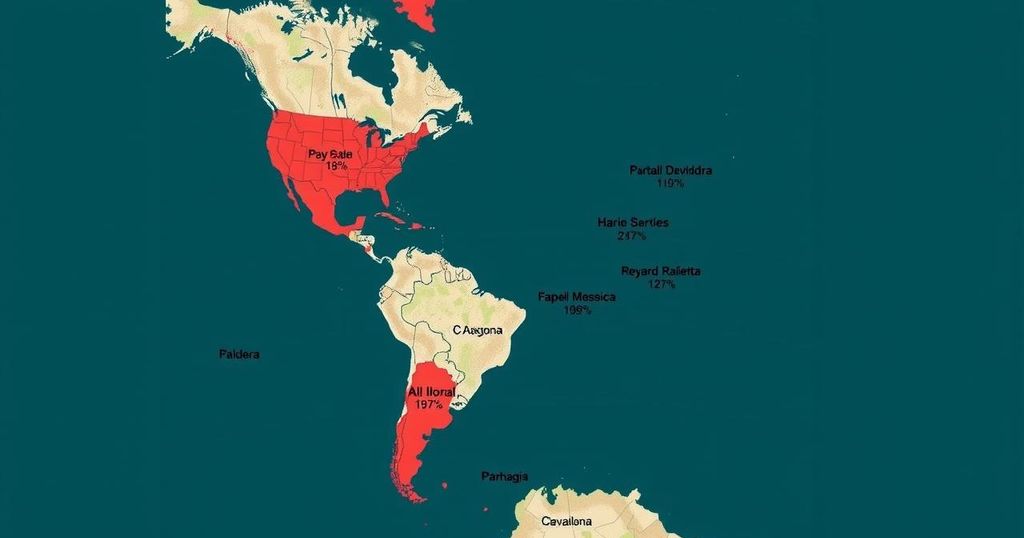U.S. Ends Humanitarian Parole Program for Venezuelans, Haitians, Cubans, and Nicaraguans

The U.S. will not renew its humanitarian parole program for Venezuelans, Haitians, Cubans and Nicaraguans, forcing those without other legal residency options to leave after their two-year stay. The decision, confirmed by DHS, creates uncertainty for over 500,000 migrants who may face deportation without a path to permanent status. The program aimed to offer temporary relief as the administration tightens immigration controls amid ongoing humanitarian crises in these countries.
The United States government has determined not to renew its humanitarian parole program, which has permitted numerous Venezuelans, Haitians, Cubans, and Nicaraguans to enter the country legally over the past two years. As a result, individuals who utilized this two-year program without alternative residency status will be required to depart the U.S. following the conclusion of their authorized stay. The Department of Homeland Security has verified this decision, indicating a shift in policy despite initial successes. Furthermore, while Temporary Protected Status (TPS) has been extended to Venezuelans and Haitians, many individuals will find themselves without legal options as their parole periods expire, creating potential challenges and uncertainties regarding their immigration status.
The humanitarian parole program was initiated under the Biden administration to offer those fleeing dire situations in Venezuela, Cuba, Haiti, and Nicaragua a legal pathway to enter the U.S. This initiative was a response to heightened humanitarian crises and was initially modeled after protections granted to Ukrainian nationals following the Russian invasion. While the program facilitated the entry of over 500,000 migrants, it was also intended to be temporary, prompting many individuals to seek more permanent status options, such as TPS or asylum, during their stay. With the cessation of this program, many migrants now face the risk of deportation if they cannot secure alternative legal statuses before their parole expires.
In conclusion, the U.S. government’s decision to terminate the humanitarian parole program signifies a pivotal shift in immigration policy, particularly affecting vulnerable populations from Venezuela, Haiti, Cuba, and Nicaragua. As the program comes to an end, those individuals without other legal avenues for residency will encounter significant challenges, impacting their futures in the United States. This development has raised concerns among advocates who fear exacerbated humanitarian crises as a result of potential deportations.
Original Source: www.miamiherald.com








